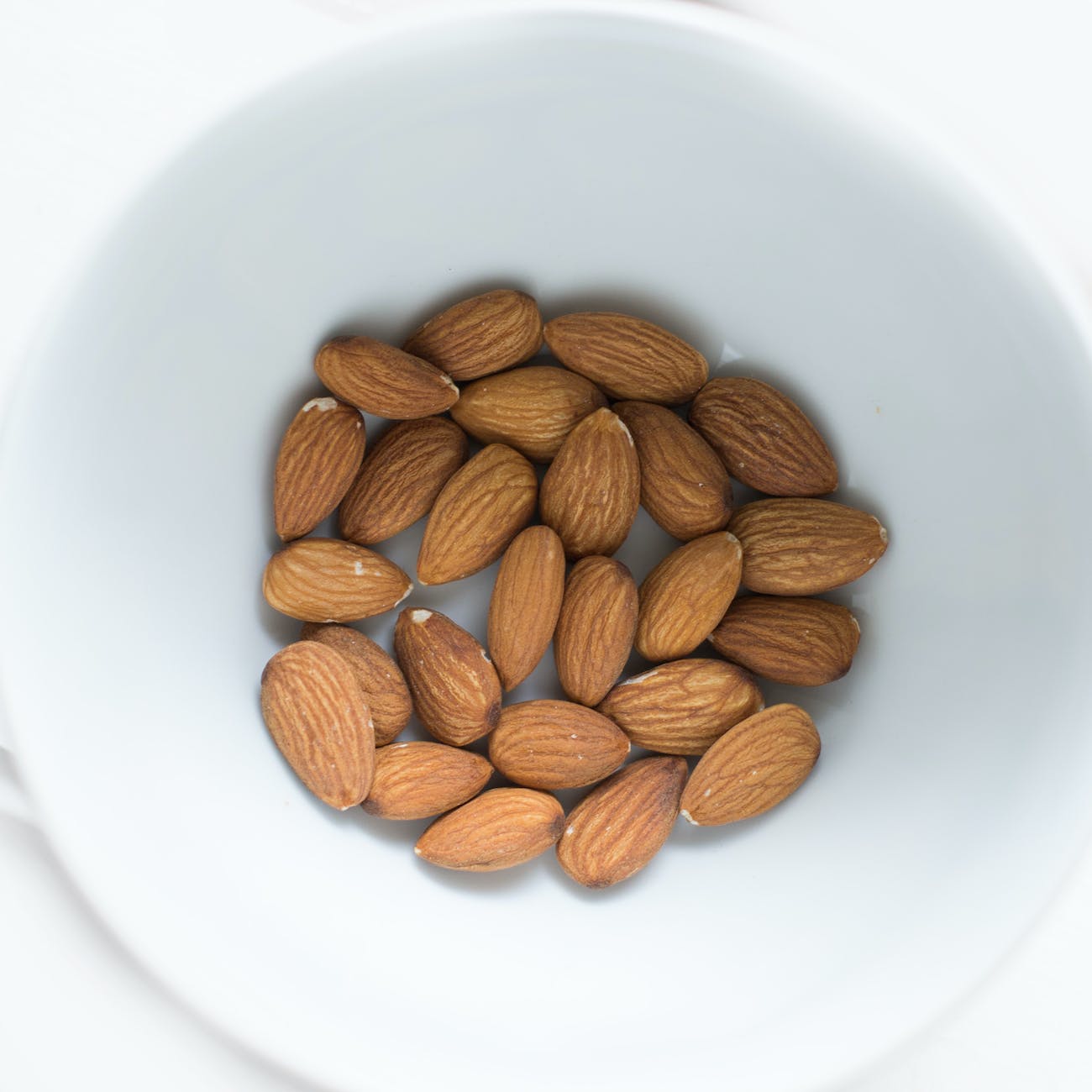
In the realm of men’s grooming, facial hair has made a significant comeback. Beards, moustaches, and other forms of facial hair are no longer just a trend but a lifestyle choice for many men. This resurgence has led to a boom in the market for facial hair care products, with a wide range of options available to help men keep their facial hair looking its best.
The Rise of Facial Hair
The last decade has seen a significant shift in men’s grooming trends, with a marked increase in the popularity of facial hair. From the rugged allure of a full beard to the classic charm of a well-groomed moustache, facial hair has become a key aspect of men’s style. This shift has been driven by a variety of factors, including changing fashion trends, a growing appreciation for traditional masculinity, and the influence of celebrity style icons.
The Market for Facial Hair Care Products
As facial hair has grown in popularity, so too has the market for facial hair care products. Today, men have a wide range of products to choose from, including:
- Beard oils and balms: These products help to moisturize the beard and the skin underneath, reducing dryness and itchiness.
- Moustache waxes: These products help to shape and style the moustache, keeping it looking its best.
- Beard shampoos and conditioners: These products help to clean the beard and keep it soft and manageable.
- Beard brushes and combs: These tools help to detangle the beard and distribute oils evenly throughout the hair.
- Beard trimmers and scissors: These tools help to maintain the shape and length of the beard.
While these products can certainly be effective, many of them contain synthetic ingredients and chemicals that some people prefer to avoid. As a result, there has been a growing interest in using traditional, natural oils for facial hair care.
[ez-toc]
The Benefits of Natural Oils
Natural oils offer a range of benefits for both facial hair and the skin underneath. They are rich in nutrients that nourish the hair and skin, promote healthy hair growth, and provide natural moisture. Additionally, many natural oils have anti-inflammatory and antimicrobial properties, which can help to soothe the skin and prevent issues like dandruff and itchiness.
Rosemary Oil for Beard Growth
Rosemary oil, derived from the aromatic herb, is a popular choice for beard care. It’s known for its ability to stimulate hair follicles, promoting hair growth and thickness. It also has anti-inflammatory properties, which can help soothe the skin under your beard, reducing itchiness and flakiness.
Nutrients for Hair and Skin: Rosemary oil is rich in antioxidants, which can help protect your hair and skin from damage. It also contains ursolic acid, a compound that can help stimulate hair growth.
How to use: Mix a few drops of rosemary oil with a carrier oil like jojoba or coconut oil. Apply the mixture to your beard and massage it into your skin. Leave it on for at least 30 minutes before washing it off.
Jojoba Oil for Beard
Jojoba oil is a liquid wax extracted from the nut of an indigenous American shrub. It closely resembles the natural oil (sebum) produced by our skin and can act as a natural skin conditioner.
Nutrients for Hair and Skin: Jojoba oil is rich in vitamins and minerals that nourish hair, including vitamin C, B vitamins, vitamin E, copper, and zinc.
How to use: Apply a few drops of jojoba oil to your palms, rub them together and then apply evenly throughout your beard. It’s best to apply after a shower when your beard is damp and pores are open to absorb the oil better.
Castor Oil for Beard
Castor oil is a vegetable oil pressed from castor beans. It’s a common ingredient in cosmetics and is known for its high ricinoleic acid content, which can balance the skin’s pH and promote healthy hair growth.
Nutrients for Hair and Skin: Castor oil is rich in ricinoleic acid, a type of fatty acid found to fight inflammation. It also has moisturizing properties, making it great for dry or coarse beard hair.
How to use: Mix equal parts of castor oil and a carrier oil like coconut or jojoba oil. Apply it to the beard and leave it on for 20-30 minutes before rinsing.
Coconut Oil for Beard
Coconut oil is a highly versatile oil that’s great for beard care. It’s an excellent conditioner and can help reduce protein loss in hair, leading to stronger, healthier beard hair.
Nutrients for Hair and Skin: Coconut oil is rich in lauric acid, which can penetrate the hair shaft to nourish the hair with vitamins, minerals, and fatty acids.
How to use: Warm a small amount of coconut oil in your hands and then apply it to your beard, making sure to massage it into the skin underneath. Leave it on for at least 30 minutes before washing it off.
Tea Tree Oil for Beard
Tea tree oil, derived from the leaves of the Melaleuca alternifolia plant, is known for its powerful antiseptic properties and ability to treat wounds, which is why it’s a common ingredient in many skin care products.
Nutrients for Hair and Skin: Tea tree oil is packed with powerful antimicrobial and antifungal properties that can help keep your skin healthy and fight off potential infections that could inhibit beard growth.
How to use: Mix a few drops of tea tree oil with a carrier oil like jojoba or coconut oil. Apply the mixture to your beard and skin underneath. Leave it on for about 15-20 minutes and then rinse it off. Be careful not to use too much as it can dry out your skin and hair.
Sandalwood Beard Oil
Sandalwood oil is extracted from the woods for use. It is known for its aromatic scent and is often used in aromatherapy. It’s also beneficial for beard care due to its moisturizing properties.
Nutrients for Hair and Skin: Sandalwood oil can help soothe dry skin under your beard and reduce inflammation. It also has a calming effect, which can reduce stress and promote healthier hair growth.
How to use: Mix a few drops of sandalwood oil with a carrier oil and apply it to your beard. Massage it into your skin and leave it on for about 20-30 minutes before washing it off.
Almond Oil for Beard
Almond oil is a mild, hypoallergenic oil that’s perfect for sensitive skin. It’s lightweight and easily absorbed, making it great for moisturizing both your beard and the skin underneath.
Nutrients for Hair and Skin: Almond oil is rich in vitamin E, a potent antioxidant that can help protect your skin and hair from oxidative stress. It also contains fatty acids that can help moisturize and soften your beard.
How to use: Apply a few drops of almond oil to your beard and massage it into your skin. You can leave it on as it’s light and doesn’t leave a greasy residue.
Peppermint Oil for Beard
Peppermint oil is known for its cooling effect and invigorating scent. It can help stimulate blood circulation to the skin, which can promote healthier beard growth.
Nutrients for Hair and Skin: Peppermint oil has antiseptic and antimicrobial properties, which can help cleanse the skin and prevent acne outbreaks.
How to use: Mix a few drops of peppermint oil with a carrier oil and apply it to your beard. Leave it on for about 15-20 minutes and then rinse it off.
Argan Oil for Beard Growth
Argan oil, often called ‘liquid gold’, is a luxurious oil known for its moisturizing properties. It’s great for taming and conditioning beard hair, leaving it soft and shiny.
Nutrients for Hair and Skin: Argan oil is rich in vitamin E and fatty acids that can nourish the hair and skin. It also has antioxidant properties that can protect the skin from damage.
How to use: Apply a few drops of argan oil to your beard and massage it into your skin. You can leave it on as it’s light and non-greasy.
Amla Oil for Beard
Amla oil, derived from the Indian gooseberry, is often used in Ayurvedic medicine. It’s known for its ability to strengthen and condition hair.
Nutrients for Hair and Skin: Amla oil is rich in vitamin C and antioxidants, which can help protect the skin and hair from environmental damage. It also has anti-inflammatory and antimicrobial properties.
How to use: Apply a few drops of amla oil to your beard and massage it into your skin. Leave it on for about 15-20 minutes and then rinse it off.
[ez-toc]
Herbs, Spices, and Natural Remedies for Beard & Facial Hair
The trend of sporting a well-groomed beard or facial hair is not just about style, but also about personal care. While there are numerous commercial products available in the market, many men are turning towards natural remedies to enhance their beard growth and maintain its health. These remedies include a variety of herbs, spices, and other natural ingredients that have been used for centuries in traditional medicine for their beneficial properties. Let’s delve deeper into some of these ingredients and understand how they can contribute to beard and facial hair growth.
Herbs and Spices
1. Fenugreek: Known for its rich protein content and nicotinic acid, fenugreek seeds are beneficial against hair fall and dandruff. They help in treating various scalp issues like dryness of hair, baldness, and hair thinning. The presence of lecithin, an emulsifying substance, nourishes and strengthens the hair follicles, stimulating hair growth.
2. Amla: Amla, or Indian gooseberry, is a vitamin C and antioxidant-rich fruit. It improves hair health and boosts its growth while preventing premature greying.
3. Ginseng: A staple in traditional Chinese medicine, ginseng stimulates blood circulation and boosts hair growth. It strengthens hair follicles and roots, leading to a fuller, healthier beard.
4. Eucalyptus: Eucalyptus is recognized for its ability to stimulate hair follicles, improve hair health, and promote hair growth. It’s a common ingredient in hair care products like shampoos and conditioners.
5. Peppermint: Known for its cooling effect and ability to improve blood circulation, peppermint can stimulate hair growth and thickness by increasing the number of follicles, depth of follicles, and overall hair growth.
6. Rosemary: Often used in hair care products, rosemary stimulates hair growth by improving circulation to the scalp.
7. Cinnamon: Cinnamon stimulates circulation to the skin, which can encourage hair growth. It also has antimicrobial properties, which can help keep your skin healthy.
8. Thyme: Thyme promotes hair growth by stimulating the scalp and actively preventing hair loss. Like cedarwood oil, thyme oil was also found to be helpful in treating alopecia areata.
Other Natural Remedies
1. Biotin: Biotin, also known as vitamin B7, is a water-soluble vitamin that’s a part of the vitamin B complex. It’s a crucial nutrient that helps to maintain healthy hair, skin, and nails. Biotin deficiency can lead to thinning of the hair.
2. Omega-3 Fatty Acids: These essential fats, which are found in flaxseeds, chia seeds, fish, and walnuts, are known to improve hair density and increase the diameter of hair strands.
3. Green Tea: Green tea is rich in antioxidants, which can help to promote hair growth and prevent hair loss.
4. Pumpkin Seed Oil: Pumpkin seed oil is believed to inhibit the enzyme that causes hair loss, making it a natural remedy for baldness.
5. Onion Juice: While it may not sound appealing, onion juice is an effective home remedy for hair growth. It provides extra sulfur to support strong and thick hair, thus preventing hair loss and promoting hair growth.
6. Aloe Vera: Aloe Vera is packed with proteolytic enzymes, which help to repair dead skin cells on the scalp. It also acts as a great conditioner and leaves your hair smooth and shiny.
Remember, while these herbs, spices, and other natural ingredients have properties that can support hair growth, they should not replace a balanced diet and good hair care habits. Always do a patch test when trying a new ingredient to ensure you don’t have an adverse reaction. If you have any concerns about your beard or skin health, consult with a dermatologist or a professional barber.
Frequently Asked Questions
1. What are the benefits of rosemary oil for beard growth? Rosemary oil is known to stimulate blood circulation to the scalp, which can promote hair growth. It’s also beneficial in treating dryness and dandruff, making it a great choice for maintaining a healthy beard.
2. How does jojoba oil help in beard care? Jojoba oil is rich in vitamins and minerals that nourish hair, including vitamin C, B vitamins, vitamin E, copper, and zinc. It moisturizes the hair without leaving any residues and helps hair cells to reproduce themselves.
3. Can castor oil promote beard growth? Yes, castor oil is known for its ability to stimulate hair growth. It penetrates deep into the skin and helps to cleanse the pores, promoting the growth of a healthy beard.
4. Is coconut oil good for beard care? Coconut oil is beneficial for beard care as it moisturizes and conditions the beard, preventing dryness and frizziness. It also helps in healthy growth of facial hair.
5. How does tea tree oil benefit the beard? Tea tree oil is known for its antiseptic properties, which can help in treating itchy skin beneath the beard. It also helps in preventing beard dandruff and promotes healthier beard growth.
6. Can almond oil be used for beard care? Almond oil is rich in Vitamin E, monounsaturated fatty acids, proteins, potassium, and zinc, all of which are beneficial for hair health. It can help in making the beard soft, shiny, and hydrated.
7. How does peppermint oil contribute to beard growth? Peppermint oil improves blood circulation, which can stimulate hair growth. It also helps in awakening hair follicles and promoting overall hair health.
8. Can argan oil promote beard growth? Argan oil is rich in essential nutrients like omega 6 fatty acids and linoleic acid which promote skin health and, in turn, can help in beard growth. It also moisturizes the beard and gives it a shiny appearance.
Conclusion
Embracing natural remedies for beard care is not just about following a trend, but about understanding the benefits of nature’s bounty. The oils and ingredients discussed in this post are packed with nutrients that can nourish your beard and skin, promoting healthier and fuller growth. Experimenting with these natural oils can help you find the perfect fit for your beard care routine.
A well-groomed beard is a reflection of your personal care and style. So, take the time to nourish it and keep it healthy. And if you know someone who loves their beard and cares for it, do share this post with them. They might find a new favorite oil or ingredient for their beard care routine.
Blog Tags: Beard Care, Natural Oils, Rosemary Oil, Jojoba Oil, Castor Oil, Coconut Oil, Tea Tree Oil, Almond Oil, Peppermint Oil, Argan Oil, Beard Growth, Natural Remedies, Beard Health, Skin Care, Hair Care.














